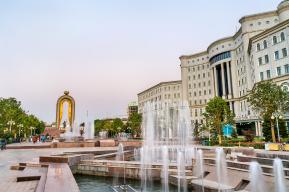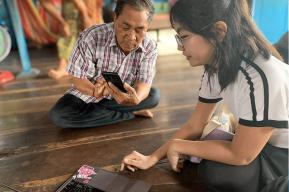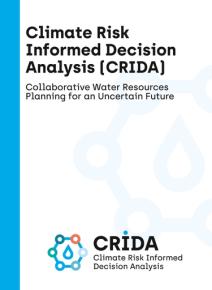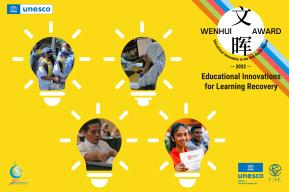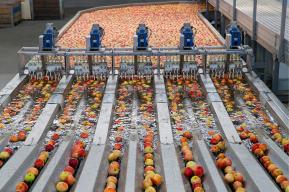News
Continuation of UNESCO Water Science activities through e-learning, open science and distance learning
UNESCO’s Division of Water Sciences’ webinar on “Transformation of UNESCO activities through: e-learning, open science and distance learning” on 14 May 2020, discussed these means of knowledge dissemination for water security in times of COVID-19. The discussion served as a foundation for the ongoing development of a strategic position paper within UNESCO’s Sector for Natural Sciences, on e-learning, open science and distance learning. Thirty-nine participants (26 men and 12 women, one guest of unknown gender) attended and contributed to the event, including representatives from the Intergovernmental Hydrological Programme (IHP), UNESCO Category 2 Centres, National Committees, professional organizations, as well as academics, scientists, young hydrologists, and UNESCO staff from Field offices and Headquarters.
In opening remarks, Mr Anil Mishra, Programme Specialist, Division of Water Sciences, UNESCO, highlighted the key objectives of the meeting. He emphasised the need to learn from experiences and innovations in three key areas developing in an increasingly virtual environment: How to support scientific research in Member States? How to foster open science, including access to scientific data, research and educational resources? Moreover, how can the societal interface of science be maintained and promoted while physical borders are closed?
In his keynote address, Mr Wouter Buytaert, Imperial College London, United Kingdom, gave examples of how COVID-19 has affected “the entire realm of science and education” and created both opportunities and challenges therein. He cited an accelerated increase in online educational content and learning opportunities, and increased availability of resources to create new content and tools, giving innovative examples of virtual field trips, citizen science, and the Water Information Network System (WINS) platform developed by IHP. He also underlined the overall challenges in leveraging this momentum to create long-term change that supports sustainable development.
Presenters shared tools, websites, associations and platforms to facilitate online learning and access to scientific and educational resources including for early career scientists, and to engage in data collection and standardization remotely. Presentations also considered the needs of educators, or content generators and disseminators, and discussed how to better understand user needs and how to ensure that content is delivered in an accessible and engaging manner. Discussions also centred around how students or content consumer access online materials, and considered examples of helpful tools and resources to access training and educational materials, and networking opportunities.
The meeting discussed challenges to online learning and open data sharing. Limited internet access was highlighted as a major concern which could undermine efforts to implement distance learning and open science. Other issues raised in the discussion included the need to adapt pedagogy and didactics to the online classroom, and to establish sufficient resources to create online content.
Mr Youssef Filali-Meknassi, Director of the Division of Water Sciences and Secretary of the IHP concluded the meeting, reiterating the importance of open science in minimizing the discrepancies between countries and societies.
Participating institutions:
UNESCO Field Offices
UNESCO Cairo Office
UNESCO Jakarta Office
UNESCO Montevideo Office
UNESCO Nairobi Office
UNESCO Regional Office for Southern Africa (UNESCO ROSA)
UNESCO Category 2 Centres
IHE Delft Institute for Water Education (The Netherlands)
International Center for Integrated Water Resources Management (ICIWaRM, U.S.)
International Centre for Water Hazard and Risk Management (ICHARM, Japan)
International Centre for Water Resources and Global Change (ICWRGC, Germany)
Regional Centre for Water Harvesting (RCWH, Sudan)
Regional Water Center for Arid and Semi-Arid Zones in Latin America and the Caribbean (CAZALAC, Chile)
Partners
AUDA-NEPAD Southern African Network of Water Centres of Excellence (SANWATCE)
Consortium of Universities for the Advancement of Hydrologic Science Inc. (CUAHSI)
Future Earth
Government of Flanders
Indian Institute of Science
International Association of Hydrological Sciences (IAHS)
Imperial College London
Joint Research Centre of the European Commission
UK Centre for Ecology & Hydrology (UKCEH)
University of Southampton
Vrije Universiteit Brussels
Water Research Center, Khartoum University
In opening remarks, Mr Anil Mishra, Programme Specialist, Division of Water Sciences, UNESCO, highlighted the key objectives of the meeting. He emphasised the need to learn from experiences and innovations in three key areas developing in an increasingly virtual environment: How to support scientific research in Member States? How to foster open science, including access to scientific data, research and educational resources? Moreover, how can the societal interface of science be maintained and promoted while physical borders are closed?
In his keynote address, Mr Wouter Buytaert, Imperial College London, United Kingdom, gave examples of how COVID-19 has affected “the entire realm of science and education” and created both opportunities and challenges therein. He cited an accelerated increase in online educational content and learning opportunities, and increased availability of resources to create new content and tools, giving innovative examples of virtual field trips, citizen science, and the Water Information Network System (WINS) platform developed by IHP. He also underlined the overall challenges in leveraging this momentum to create long-term change that supports sustainable development.
Presenters shared tools, websites, associations and platforms to facilitate online learning and access to scientific and educational resources including for early career scientists, and to engage in data collection and standardization remotely. Presentations also considered the needs of educators, or content generators and disseminators, and discussed how to better understand user needs and how to ensure that content is delivered in an accessible and engaging manner. Discussions also centred around how students or content consumer access online materials, and considered examples of helpful tools and resources to access training and educational materials, and networking opportunities.
The meeting discussed challenges to online learning and open data sharing. Limited internet access was highlighted as a major concern which could undermine efforts to implement distance learning and open science. Other issues raised in the discussion included the need to adapt pedagogy and didactics to the online classroom, and to establish sufficient resources to create online content.
Mr Youssef Filali-Meknassi, Director of the Division of Water Sciences and Secretary of the IHP concluded the meeting, reiterating the importance of open science in minimizing the discrepancies between countries and societies.
Participating institutions:
UNESCO Field Offices
UNESCO Cairo Office
UNESCO Jakarta Office
UNESCO Montevideo Office
UNESCO Nairobi Office
UNESCO Regional Office for Southern Africa (UNESCO ROSA)
UNESCO Category 2 Centres
IHE Delft Institute for Water Education (The Netherlands)
International Center for Integrated Water Resources Management (ICIWaRM, U.S.)
International Centre for Water Hazard and Risk Management (ICHARM, Japan)
International Centre for Water Resources and Global Change (ICWRGC, Germany)
Regional Centre for Water Harvesting (RCWH, Sudan)
Regional Water Center for Arid and Semi-Arid Zones in Latin America and the Caribbean (CAZALAC, Chile)
Partners
AUDA-NEPAD Southern African Network of Water Centres of Excellence (SANWATCE)
Consortium of Universities for the Advancement of Hydrologic Science Inc. (CUAHSI)
Future Earth
Government of Flanders
Indian Institute of Science
International Association of Hydrological Sciences (IAHS)
Imperial College London
Joint Research Centre of the European Commission
UK Centre for Ecology & Hydrology (UKCEH)
University of Southampton
Vrije Universiteit Brussels
Water Research Center, Khartoum University

8 June 2020
Last update:20 April 2023


